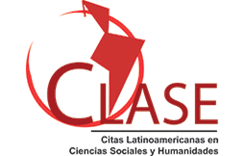MANAGEMENT OF ORGANIZATIONAL PERFORMANCE IN LOTS OF AGRICULTURAL REFORM IN BRAZIL
EVALUATION FRAMEWORK PROPOSAL
DOI:
https://doi.org/10.54399/rbgdr.v20i3.6832Keywords:
Rural settlements, Rural development, Family farmingAbstract
Currently, family farming is responsible for national food security, in addition to generating employment and income for a large portion of the Brazilian population. The agrarian reform lots are productive units of family farming with specific characteristics, which justifies a different look at their organization and production. Given this context, the objective of this article is to outline a framework for organizational performance management in agrarian reform settlements, contributing to the analysis of development in rural areas. It starts with a database of 25,150 batches, collected by the RADIS/UFMT Project, in the years 2018 to 2022. Through content analysis, the information related to the production model in the batch, in the light of the opinion of the technician of field has been worked. The methodology made it possible to identify the most frequent terms in the discourse and, with the support of theoretical sources and concepts, to categorize them into groups (clusters), which constitute the categories for evaluating organizational performance appropriate to the reality of family farmers in the agrarian reform. The study adds contribution to knowledge for the post creation of settlements and granting of lots of land reform in Brazil.
Downloads
Published
How to Cite
Issue
Section
License
Copyright (c) 2024 Revista Brasileira de Gestão e Desenvolvimento Regional

This work is licensed under a Creative Commons Attribution-NonCommercial 4.0 International License.
Authors who have their papers accepted and published in the Brazilian Journal of Regional Management and Development must agree to the copyright policy CC BY https://creativecommons.org/licenses/by/4.0/.
If the article is accepted for publication, the copyright is automatically assigned to the Brazilian Journal of Regional Management and Development.

















